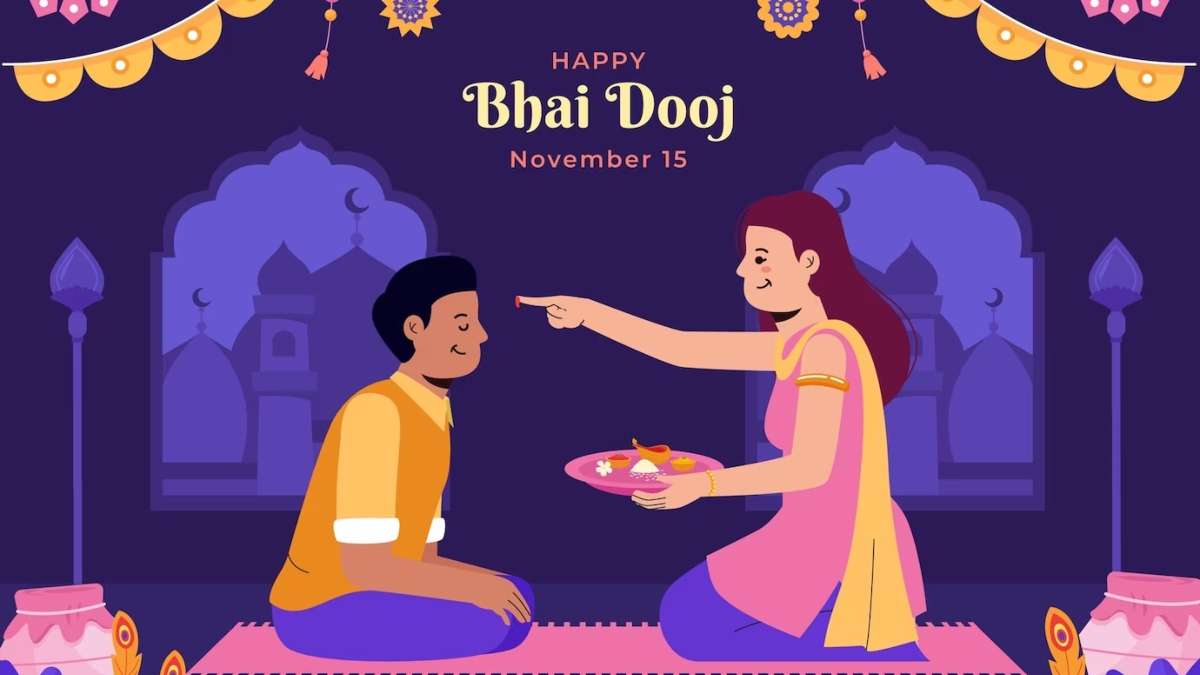
Bhai Dooj, a special occasion akin to Raksha Bandhan, falls on November 15 this year. Celebrity Astrologer Parduman Suri shares insights on the traditions associated with this festival, shedding light on the significance of tilak application and the stories behind its celebration.
According to Astrologer Praduman Suri, when applying tilak on the sister’s forehead, the brother’s face should be oriented towards either the north or northwest. On this day, it’s advised for both siblings to avoid wearing black and blue-colored clothes. The tilak ceremony is not merely a ritual; it symbolizes sincere prayers for the brother’s long and prosperous life and is often accompanied by the exchange of gifts. This act of devotion is believed to ward off the fear of Yam, the god of death, and brings about an increase in wealth and prosperity for the brother’s household, ensuring a string of auspicious events.
The Legends Behind Bhai Dooj
Two popular stories surround the origins of Bhai Dooj. In one tale from Satyug, Yama, the god of death, visited his sister Yamuna. She not only applied tilak but also hosted a feast for her brother. Yama, pleased with the warm welcome, granted Yamuna a boon: any sister who reveres her brother with respect and applies tilak on this day will be free from the fear of death. This tradition has persisted since then.
Another mythological story traces the festival’s roots back to Lord Krishna’s visit to his sister Subhadra after defeating the demon Narakasur. She welcomed him with sweets and flowers, applying tilak on his forehead. This incident is considered by some as the genesis of the Bhai Dooj celebration.
Auspicious Timing for Bhai Dooj
- The first auspicious time is from 6:44 am to 9:24 am.
- The second auspicious time is from 10:40 am to 12:00 pm.
Significance of Bhai Dooj
The festival observed on the second day of the bright fortnight of Kartik month, mirrors the special bond between siblings. Sisters tie a sacred thread on their brother’s wrist and apply tilak on their forehead, signifying a bond of protection and love. In return, brothers seek blessings from their sisters, with the added tradition of gifting a dry coconut, locally known as Gola.
Procedure for Applying Tilak
- Begin the day by worshipping Lord Ganesha on the auspicious occasion of Bhai Dooj.
- Sisters should prepare a plate with essential items like roli, akshat, dry coconut, and sweets before proceeding with the tilak ceremony.
- The timing of the tilak ceremony is crucial, and it is recommended to choose an auspicious time for this ritual.
- As part of the celebration, sisters can consider preparing a favourite meal for their brothers, which is deemed auspicious.
- After the tilak ceremony, the brother seeks blessings from his sister, and as a gesture of appreciation, he presents a gift to her.
ALSO READ: Bhai Dooj vs Raksha Bandhan: What’s the difference?
Read More Lifestyle News





